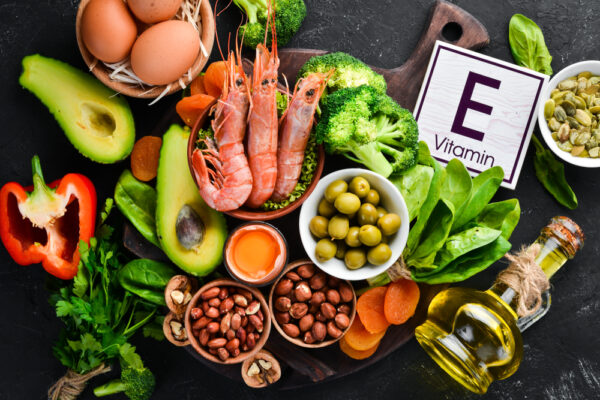Welcome to Well Health Tips in Hindi WellHealth, where we are eager to share the keys to unlocking a happier and healthier life. In today’s fast-paced world, prioritizing our well-being often takes a backseat. Fret not, as we present crucial Well Health Tips in Hindi WellHealth that promise to not only enhance your physical and calcium well-being but also uplift your spirits. Join us on a journey towards holistic wellness as we delve into practical strategies nurturing your body, mind, calcium, and soul. So, grab a cup of tea, settle in, and prepare for life-changing advice on calcium and a healthy body that will leave you feeling rejuvenated and inspired! Explore some delectable alternatives for obtaining calcium.
Calcium: Why is it Essential?
Calcium plays a vital role in building robust bones, teeth, and maintaining healthy muscle function within the human body. It regulates muscle contractions, including the heartbeat.
Do you require a specific daily calcium intake?
For adults aged 19 to 50, the upper limit for calcium is 2,500 mg per day, while those aged 51 and older should not exceed 2,000 mg per day.
The conventional association with calcium often leads us to think of cow’s milk. Undoubtedly, cow’s milk is an excellent source, providing 309 mg or 24% of the daily value in one cup (8 fluid ounces).
For those unable to consume milk due to lactose intolerance or a vegan diet, here are delightful alternatives rich in calcium to incorporate into your diet.
Also Read : Skin care in hindi wellhealthorganic
Delicious Milk Alternatives | Well Health Tips in Hindi WellHealth
Almonds:
- Calcium content: 254 mg per 100 grams.
- More calcium than cow’s milk; ideal for snacks, salads, smoothies, or baked goods.
- Almonds are also rich in vitamin E, promoting healthy skin and eyes.
Broccoli:
- Calcium content: 46 mg per 100 grams.
- Beyond its health benefits, broccoli offers calcium, vitamin C, vitamin K, and folate.
- Try incorporating broccoli into dishes like Broccoli Paratha or Broccoli Salad.
Tofu:
- Calcium content: 350 mg per 100 grams.
- A high-protein meat substitute in vegetarian and vegan diets; surpasses milk in calcium.
- Boost your calcium intake with delicious homemade tofu meals.
Orange Juice Fortified with Vitamin D:
- Calcium content: 115 mg per 100 grams.
- An alternative to milk, fortified orange juice can be homemade or store-bought.
- Choose options with minimal added sugar to maintain a healthy diet.
Also Read : Wellhealth how to build muscle tag
Cheese, Especially Mozzarella:
- Calcium content: 505 mg per 100 grams.
- Mozzarella contains more calcium than a glass of milk; supports digestion and the immune system.
- Incorporate into pasta, pizza, risotto, salad, or enjoy on its own.
Yogurt:
- Calcium content: 110 mg per 100 grams.
- Plain yogurt is a calcium-rich option, even more so than milk per serving.
- Enhance the flavor by adding fruits or opt for convenience with fruit-infused yogurt.
Green Leafy Vegetables:
- Kale: 250 mg of calcium per 100 grams.
- Rich in calcium and essential vitamins, including bone-health-supporting vitamin K.
- Some other green vegetables also contribute to calcium intake.
White Beans:
- Aka Navy Beans; a good source of calcium and fiber.
- One cup of white beans provides more calcium than a cup of milk.
- Easily substitute milk in various dishes like bean curry, bean soup, or bean salad.
Calcium Absorption and Vitamin D:
It’s not just about calcium content; it’s about how readily your body can absorb it. For effective absorption, vitamin D from your diet or sunlight exposure is crucial.
Also Read : Wellhealthorganic home remedies tag
Disclaimer: Well Health Tips in Hindi WellHealth
Well Health Tips in Hindi WellHealth, Content provides information and advice, but we do not take responsibility for its accuracy. Always consult a specialist or your doctor for personalized guidance.
FAQs About Well Health Tips in Hindi WellHealth:
1. Why is calcium important for our health?
Ans: Calcium is crucial for building strong bones and teeth, maintaining healthy muscle function, and regulating muscle contractions, including the heartbeat.
2. How much calcium do adults need daily?
Ans: Adults aged 19 to 50 should aim for a maximum of 2,500 mg per day, while those aged 51 and older should not exceed 2,000 mg per day.
3. What are some alternatives to cow’s milk for calcium intake?
Ans: Almonds, broccoli, tofu, fortified orange juice, mozzarella cheese, yogurt, green leafy vegetables like kale, and white beans are excellent alternatives.
4. Can lactose-intolerant individuals still meet their calcium needs?
Ans: Yes, lactose-intolerant individuals can opt for calcium-rich alternatives like almond milk, tofu, fortified orange juice, and various dairy-free options.
5. Which vegetables provide calcium without the hindrance of oxalates?
Ans: Kale, white beans, and other green leafy vegetables are good sources of calcium without the inhibiting effect of oxalates.
6. Is calcium absorption only dependent on its content in food?
Ans: No, calcium absorption also depends on the presence of vitamin D in the body, obtained either through the diet or exposure to sunlight.
7. Can calcium be obtained solely from plant-based sources?
Ans: Yes, calcium-rich plant-based sources include almonds, tofu, green leafy vegetables, and white beans, making it possible to meet calcium needs without animal products.
8. How can one make plain yogurt more flavorful while maintaining healthiness?
Ans: Adding fruits to plain yogurt enhances flavor while maintaining healthiness. Choose fruits with minimal added sugars for a healthier option.
9. Is calcium alone sufficient for overall bone health?
Ans: While calcium is essential, overall bone health requires a combination of nutrients. Vitamin D is crucial for calcium absorption, and a balanced diet contributes to comprehensive bone health.
10. What is the recommended way to ensure accurate health information?
Ans: Always consult specialists or your doctor for personalized health advice. This content provides information, but individual health needs may vary.




